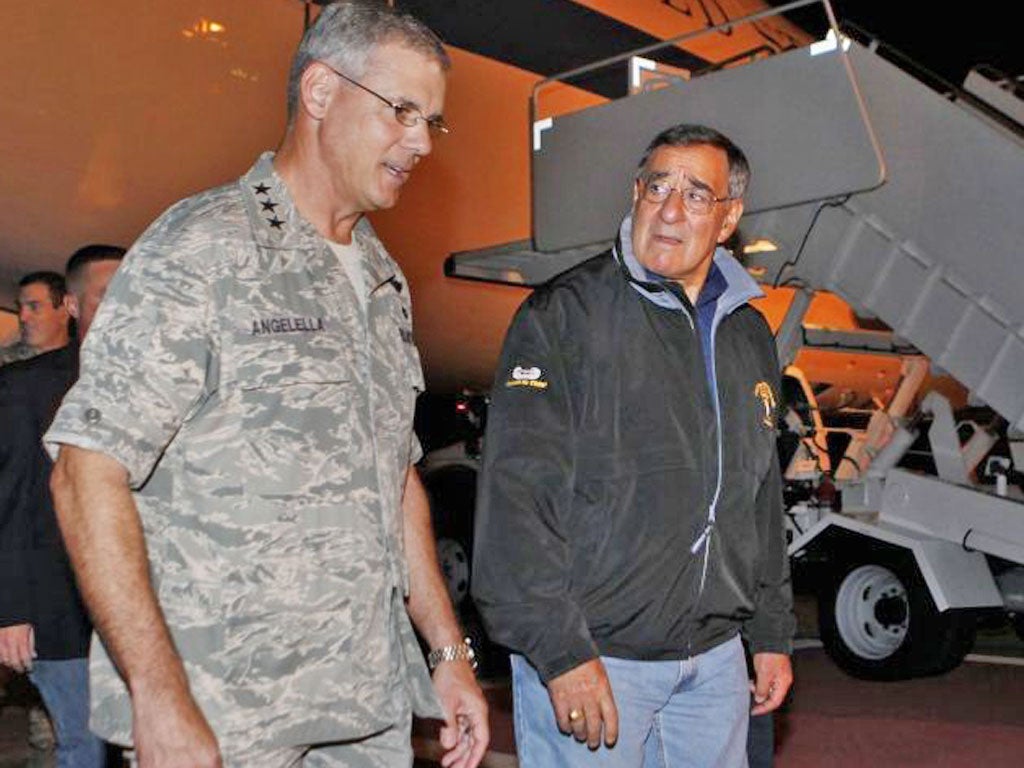US urges China and Japan to cool islands dispute
Warning that East China Sea row could erupt in regional conflict

Leon Panetta, the US Defence Secretary, has said he is concerned that the territorial dispute between Japan and China over islands in the East China Sea could result in conflict, which would have the potential to draw in other nations.
Speaking to reporters on his plane en route to a week-long trip to the region, Mr Panetta said he will urge countries in the Asia-Pacific region to find a way to resolve their problems peacefully. He arrived in Tokyo yesterday, the first stop of his trip.
His comments came as Chinese police used pepper spray, tear gas and water cannons to disperse an anti-Japan protest in the southern city of Shenzhen, near Hong Kong.Relations between China and Japan have long been tense, but Tokyo's recent decision to buy the uninhabited islands at the centre of the territorial dispute from a private owner has prompted angry protests in China.
"I am concerned that when these countries engage in provocations of one kind or another over these various islands that it raises the possibility that a misjudgement... could result in conflict, and that conflict would have the potential of expanding," Mr Panetta said.
Although Japan has controlled the islands – called Diaoyu in Chinese and Senkaku in Japanese – for decades, Beijing saw the purchase of some of the islands as an affront to its claim, and as further proof of Tokyo's refusal to negotiate.
China believes the islands were illegally invaded and occupied by the Japanese during the Second World War, and were returned to China when Japan was defeated.
Protests also erupted in Beijing and several other cities across China over the weekend. Demonstrators threw rocks at the Japanese embassy, prompting Japan's Prime Minister to call on Beijing to protect his country's people and their property.
Territorial battles between China and many of its other neighbours, as well as between Japan and South Korea, have also flared recently.
Japan and South Korea are at odds over an islet claimed by both, and China stoked anger with its increasingly assertive stance regarding its claims to resource-rich waters to the south and east.
"We're going to face more of this," Mr Panetta said. "The countries are searching for resources. There [are] going to be questions raised as to who has jurisdiction over these areas."
This is Mr Panetta's third trip to Asia in 11 months, reflecting the Pentagon's shift to put more military focus on the Pacific region. His visit to Japan is also likely to include discussions about the deployment of V-22 Ospreys there.
Thousands have protested at the planned use of the hybrid aircraft, which take off and land like a helicopter but fly like a plane, saying they are unsafe. The Pentagon plans to deploy 12 Ospreys. US officials have assured Japanese leaders they are safe.
AP
Subscribe to Independent Premium to bookmark this article
Want to bookmark your favourite articles and stories to read or reference later? Start your Independent Premium subscription today.

Join our commenting forum
Join thought-provoking conversations, follow other Independent readers and see their replies